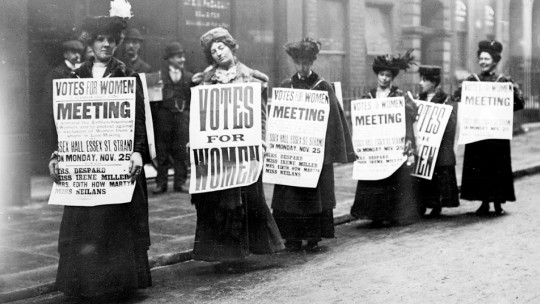
March 8 marks Women’s Day, a date on which we remember the fight for women’s rights and equality around the world. As clinical psychologists, I think it is important to reflect on the importance of understanding the social and political context in which women live.
In our clinical work, it is essential to recognize that women’s individual experiences are deeply influenced by social, cultural and political factors. From discrimination and harassment to gender-based violence, the issues women face cannot be addressed on an individual level alone.
In this article, I will discuss the importance of understanding the social and political context in which women live and how this can affect their mental health Additionally, I will provide some recommendations to address these problems from a psychological and feminist perspective.
The influence of the social and political context on women’s mental health
It is well known that social, cultural and political factors have a significant impact on women’s mental health. Women face discrimination in the workplace, sexual harassment, gender-based violence, and restrictions on their access to education, healthcare, and other basic resources. All of these problems can have negative effects on your mental health
For example, women are known to have a higher prevalence of depression and anxiety compared to men. Additionally, gender violence and sexual harassment can lead to post-traumatic stress disorder and other anxiety disorders. Women can also experience eating disorders as a result of media pressure to have a “perfect” body. Besides, Women who face discrimination and social exclusion due to their sexual orientation, race, ethnicity, religion or disability may face even more barriers to access appropriate mental health care.
It is important to note that these problems are not the result of individual “weakness” or “lack of resilience” in women. Instead, they are the result of social systems and structures that undermine women’s health and well-being. By understanding the influence of social and political context on women’s mental health, we can begin to address these issues more effectively.
The need to address problems at a social and political level
It is important to recognize that issues affecting women’s mental health cannot be addressed on an individual level alone. While individual healthcare and therapy are important, these issues also need to be addressed on a social and political level.
For example, it is necessary advocate for laws and policies that protect women from harassment and gender-based violence It is also important to promote education and equal opportunities for women. Health care must be available and accessible to all women, regardless of their economic status or geographic location.
Furthermore, it is necessary to challenge cultural and social norms that perpetuate discrimination and exclusion of women. This includes challenging gender stereotypes and promoting gender equality in all areas of life.
Examples of how the social and political context affects women’s mental health
Below, I will present some concrete examples of how the social and political context can affect women’s mental health.
1. Lack of access to quality mental health services
In many countries, women face barriers to accessing quality mental health services due to lack of resources and gender discrimination This can lead to untreated or poorly treated mental health problems, which can have serious consequences for your well-being and quality of life.
2. Government policies that restrict access to abortion
Government policies that restrict access to abortion can have a negative impact on women’s mental health. Women who do not have access to safe abortion may face an increased risk of depression and anxiety, as well as other mental health problems
3. Discrimination in the workplace
Women face discrimination in the workplace around the world, which can have negative effects on their mental health. Discrimination can lead to self-esteem issues, depression and anxiety, and can affect women’s ability to advance in their careers.
4. Gender violence and sexual harassment
Gender violence and sexual harassment are serious problems that affect women’s mental health. Violence can cause post-traumatic stress disorder and other anxiety disorders while bullying can cause chronic stress and anxiety.
Conclusions and recommendations
It is important to note that these are just some examples of how the social and political context can affect women’s mental health. Discrimination, harassment and gender-based violence are widespread problems and concerted efforts are needed to address them.
In conclusion, it is essential to understand the social and political context in which women live in order to effectively address the problems that affect their mental health.
Discrimination, harassment and gender-based violence are serious problems that have a significant impact on women’s mental health. Therefore, These problems need to be addressed not only at the individual level, but also at the social and political level
To address these issues from a psychological and feminist perspective, it is important to listen to and validate women’s voices, understand the influence of social, cultural and political factors on women’s mental health, and work together to build a better society. fairer and more equitable for women.
On this Women’s Day, it is important to remember the fight for gender equality and commit to working together to achieve meaningful change.








